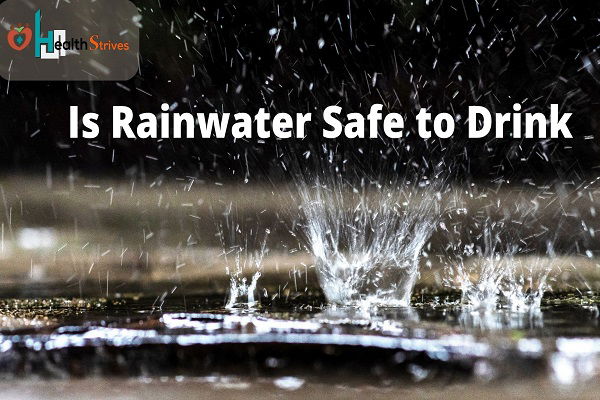Is It Safe to Drink Rainwater? Are Aware of The Health Benefits

You've probably heard a lot about gathering rainwater for various uses. Some individuals utilise rainwater for bathing, cleaning, and watering plants. But have you ever wondered, is rainwater safe to drink? And if so, is drinking rainwater safe? The quick response is: occasionally. You might find this strange, so you might be interested to learn when it is safe to drink, how pure it is, how to prepare rainwater for drinking, and—most importantly—what are the advantages of doing so.
When you realise that rainwater is genuinely drinkable for several good reasons, these queries may cause you to become perplexed. Let's start by addressing each of your concerns one at a time and clearing up any confusion so you can make the most of rainwater by saving it, drinking from it, and using it properly.
Is rainwater fit for consumption?
As long as the rainwater is clean, consuming it is neither harmful nor improper. In reality, a lot of towns and cities use rainwater as their main source of drinking water. Despite this, drinking rainwater is quite safe. It may include less pollution, mould, pollen, and other toxins, making it even safer to drink than the public water supply.
But a number of physical and environmental variables can easily transform fresh, clear rainwater into serious health risks. Because of this, rainwater that collects in highly polluted places or that comes into contact with toxins like animal excrement or heavy metals may not be safe for ingestion by humans.
So, until you are very positive that the rainwater is pure and safe for consumption, it is not suggested to start collecting and drinking it. Maybe this knowledge may put your mind at ease and answer the question, "Is rainwater safe to drink?"
How Can Rainwater Be Made Drinkable?
Knowing how to make rainwater edible is the next step after realising that rainwater is safe to consume. Boiling and filtration are two essential procedures you may do to purify rainwater if you're worried about it being safe to drink. Rainwater can be boiled to destroy germs, and it can be filtered to get rid of impurities like mould, dust, pollen, and chemicals.
The majority of rainwater is naturally acidic due to the interaction between water and carbon dioxide in the atmosphere, which causes acidic rain. It is safe to ingest acidic rain because its pH ranges from 5.0 to 5.5 on average. In truth, the coffee and orange juice you consume have pH balances of 5.4 and 4, respectively, which may be slightly damaging to your health if you don't practise moderation. Rain that falls near an active volcano is rain that should not be consumed. It is now appropriate to examine the advantages of rainwater after having had such a fair debate on its safety and drinking quality.
